How are motivating a recalcitrant horse to get into a horse trailer and getting your mind to spit out words when it doesn’t want to the same? Read this article and find out.
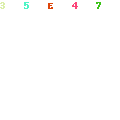
I’m going to illustrate this blog post with a simple tale springing from ranch life. This is a true story, obviously, since those are photos. This is The Day Corcovado Learned to Load and Unload from a Trailer. Note that the horse is not freaking out, pitching a fit, or tramping his handlers. No, Corco is doing something more effective. He’s adopted The Mule Stance. My mind follows Corco’s example as I contemplate rewriting Mogollon.
A while ago, I wrote that I was going to blog about the rewrite, the re-vision, of my draft version of Mogollon, the sequel to my award winning book, Numenon.
That was weeks ago. In that time, we put a Kindle version of Numenon out for 99 cents. Sales went crazy, Numo hit # 1 in Mysticism, and then cruised near the top of the Religious Fiction category.
This was a problem.
Why? Because Numenon is the introduction to the series. It’s got every hook in the world in it to make people want the sequel. It ends with a bang and points the reader dead at Mogollon, the rewrite of which we are discussing.
Numenon’s readers are already asking for the sequel; some are getting kinda grouchy about it. How long will my readers wait before dumping me entirely?
The book’s first and part of a second draft is written. All I have to do is open my computer files and wail away, toiling for a really long time to get the manuscript cleaned up as well as I can. Then I have to go through the editorial and proofing process, necessitating months and months of hard work before a publishable version exists.
As owner of an Indie press, after I do all the above, I get to manage the design and publication process, and then marketing and sales.
I can’t open the manuscript’s files. I’d rather do anything than think about the changes I have to make. I’d as soon dismember my firstborn child as whack away at Mogollon.
DO YOU THINK I’VE GOT WRITERS’ BLOCK?
* * *
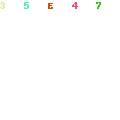
An undisclosed amount of time later and the guys have the task in hand. All they have to do is get Corco from where he is into the trailer. All I have to do is get Mogollon into print.
WHAT IS WRITERS’ BLOCK? Essentially, it’s psychological resistance. Usually it involves the writer’s ego: “My work is so important … The world needs my masterpiece. I can’t write. If I can’t write, I’ll die, and the world will be left without my words … What a tragedy.”
I realize that sounds judgmental and mindless of the pain of the condition, but remember that the blocked up person I’m talking about is me. I exhibit almost every causal attitude I’ll discuss below.
The desire to write the Great American (Latvian, Lithuanian, or Other) Novel can shut a writer down: “I have this HUGE idea. Can I possibly express it? Am I big enough? Good enough?” Hand wringing. Angst. Pain. It’s based on an inflated image of one’s importance in the Grand Scheme of Things.
If you regarded finishing your novel the way ranch people regard mucking out the stalls, would it be so hard? So wrenching? Would you stay awake nights because you couldn’t finish the job? No. When writing becomes a job of work, histrionics leave and you can get the thing done.
Writer’s block also can be associated with positive things. Sherman Alexie, the bestselling Native American author, reminds us that success can block you up good. How can you write when your last book was a national bestseller and your publisher is leaning on you for the new one? And grumbling about your contract and the advance you got for the three book deal?
Heart breaking, isn’t it?
Just plain fear is behind a lot of this. Can I do it? Can I bring it across? It’s the terror that arises when one faces in front of a blank screen or empty page. My eyes widen and I suppress a scream . . .
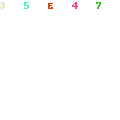
Real progress: both front hooves are on the ramp. Corco continues to exhibit the Mule Stance. These photos were taken over several hours of intense human-equine power negotiation. Notice the carrot in Barry’s hand. Sometimes positive reinforcement doesn’t work. Also–Corco had a bath before these pictures were taken. His coat is wet from suds, not sweat. It’s the guys who are sweating.
Laziness sometimes lurks behind the inability to finish a tale. Writing a novel is about the hardest kind of authoring imaginable. (Though I think a surgeon friend’s rewrite of his textbook on arthroscopic ankle surgery ranks up there)
You may begin your manuscript and discover that completing it requires the discipline to sit down and bang it out––to sit for days, months, and years. Despite your earth-shaking, sure to be a bestseller idea, your book won’t exist unless you write it down.
“It’s just too hard … I can’t do it.” Another tragedy.
So you go to a writing group for support and stick around until you hear their feedback to your cherished production. Sometimes this can be bracing in a “pull up your socks” way, and sometimes it can shut down all creativity. Rough editors can do the same.
The rest of humanity, household pets, inanimate objects, and lousy viruses and bacteria can stop a writer’s progress. Life intrudes.
“Marge, there’s a truck in the living room. It just came through the wall.”
Call it resistance or an errant Mack truck, writer’s block is writer’s block. A cure exists. I have written about it: The Ultimate Cure for Writer’s Block. If you get what I say in this article, block will not trouble you, unless it wants to.
* * *
ON THE OTHER HAND, YOU MAY NOT BE ABLE TO FINISH YOUR MANUSCRIPT BECAUSE THE TIME ISN’T RIGHT. You and your book idea might not be cooked enough.
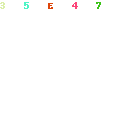
In a revolutionary move, Tony has PICKED UP CORCO’S HOOF and placed it further onto the ramp. Notice that nothing else has changed in the horse’s stance. True resistance, perfectly executed. Well done, Corco!
THE PROCESS OF TEACHING CORCOVADO TO LOAD AND UNLOAD ILLUSTRATES THE LESSON IN THIS ARTICLE:
YOU CANNOT MAKE A 1,200 POUND ANIMAL DO ANYTHING. IT HAS TO WANT TO DO IT.
YOU CAN’T MAKE A WRITER SPIT OUT WORDS, EITHER.
WRITER’S BLOCK IS LIKE THE BERLIN WALL: YOU CAN’T GO AROUND IT, OVER IT, OR UNDER IT AS LONG AS IT’S STANDING AND THE GATES ARE CLOSED.
RECALL THAT THE BERLIN WALL (which some of you may not remember) CAME DOWN WHEN THE TIME WAS RIGHT.
RESISTANCE IS LIKE THAT: It seems like a solid wall, but it’s got invisible cracks. As time passes, doors open, and close. Keep your eye on the wall, and go through when an opening appears. (That means write like crazy when you can.)
WHILE YOU’RE WAITING, DO SOMETHING ELSE.
THINGS TO DO WHILE WAITING FOR AN OPENING IN YOUR RESISTANCE:
READ. You can read all sorts of stuff, including my online magazine, SPURS MAGAZINE. SPURS is about changing the world, or at least cleaning up some of its nasty bits. I named it SPURS because in life, sometimes you need spurs to get moving. I’ve been writing SPURS since the late 1990s and am about to unleash it in blog form, as soon as I get over my paralysis over rewriting Mogollon.

Advanced training technique: Tony waves his hat while Barry pulls on the lead rope. Corco remains unmoved. Some people resort to offering buckets of carrots and grain at this point. When that doesn’t work, they escalate to use of two by fours and longe whips. Nasty. We don’t do that. The inter species negotiation process intensifies as and the sun drops on the horizon …
SPURS’ WRITERS’ CORNER. Not only do I have a ‘zine, I’ve got a ‘zine for writers, dealing with topics that writers must manage or go insane. The WRITERS’ CORNER is one of the most popular locations on my web empire. (I’ve got 52 URLs, compadres.)
[Note: If you think Mogollon needs rewriting, SPURS’ WRITERS’ CORNER needs major surgery. Read it and know it’s a draft. I’ll rewrite it before I die. Or make it into a blog. Okay?]
SPURS’ WRITERS’ CORNER contains a bunch of articles relevant to writer’s block. These articles walk through the process of writing as experienced by me and many others. (Lots of references & links.) Please allow your browser time to open at the links.
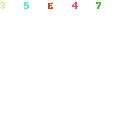
Tony and Barry attempt to FORCE Corco into the trailer. Barry is inside the trailer, pulling hard, while Tony applies muscle at the other end. Does it work? What do you think? You can no more force a horse into a trailer than your brain to kick out the right words. (Note: Do not do what you see above at home. What’s shown in the above photo is extremely dangerous and very bad horsemanship. Corco could kill either man if he lunged forward or bolted backwards.)
TO DISTRACT YOURSELF WHEN YOU CAN’T WRITE, YOU CAN ALSO CLEAN THE HOUSE, ROLLER SKATE, GO TO YOUR SHRINK, BLOG ABOUT YOUR BLOCK, ENTERTAIN YOUR FELLOW WRITERS, OR TAKE A NAP.
MOSTLY, CONTEMPLATE THE SITUATION UNTIL YOU REALIZE THE REAL REASON FOR YOUR BLOCKAGE/STOPPAGE.
WHAT WRITING THIS ARTICLE DID FOR ME WAS MAKE ME REALIZE THAT:
- I’m tired.
- I need a break.
- A real break where I do NOTHING, NADA, ZILCH.
- NO book marketing, planning the next move, scheduling book signings, reading blogs on marketing, sales, the latest Net techniques.
- Take the box of books out of the trunk of the car “just in case.”
- I need to stop doing what I’m doing and allow my personal process––my soul, if you will––to call the shots.
- When The Universe wants me to finish Mogollon, I will, and probably pronto.
[HERE’S AN EXERCISE: I throw them in all over Stepping Off the Edge, might as well here. Please jot down any images or thoughts that come to you while you read my list, and the rest of the article, including hops to Spurs’ Writers’ Corner and Spurs Magazine. Take some time and generate your own list of word blockers. Where are you in the process above? I’m not saying that you’re worn out, either. Your situation reflects your writing style and process. You may need a kick in the rear.]
MY REAL PROBLEM IS: I’M POOPED.
I’m taking that break, goin’ to Santa Fe for three weeks. Santa Fe, New Mexico, is like catnip to me. Where we stay, there’s no Internet, no phone, no TV, no roads. Just wind and sky and a few snakes.
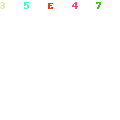
Tony leads Corcovado out of the trailer. Note how relaxed the horse is. He never had a problem going into or out of a trainer from this day forward.
WHAT DOES CORCO SAY ABOUT THIS?
About a minute after the previous photo, Corcovado walked into the trailer easily and with no fuss. He’d decided that he wanted to.
When your soul/brain/heart/body/hands decide it’s time to write, you will. You’ll write good stuff, that deserves to see the light of day.
PS. If you liked this article, you will like my book Stepping Off the Edge. It has much more about living the writer’s life, success, triumph, despair, and JOY.
STEPPING OFF THE EDGE on KINDLE– 99 cents for a limited time!
NUMENON on KINDLE––99 cents for a limited time!
Hasta luego, amigos! I’ll write more later! I have a date with a dirt road and cactus.
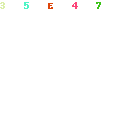
Numenon, by Sandy Nathan, is a 2009 Nautilus Book Awards Silver Winner!
Sandy Nathan
Winner of the 2009 Silver Nautilus Award for Numenon
The Nautilus Awards are dedicated to “changing the world one book at a time.” The Nautilus Award was established to find and reward distinguished literary contributions to spiritual growth, conscious living, high-level wellness, green values, responsible leadership and positive social change.
By winning a Nautilus Silver Award with her book, Numenon, author Sandy Nathan joins the ranks of Deepak Chopra, M.D., Barbara Kingsolver, Thich Nnat Hanh, Jean Houston, PhD., Eckhart Tolle, and His Holiness the Dalai Lama. All are Nautilus Award winners.










